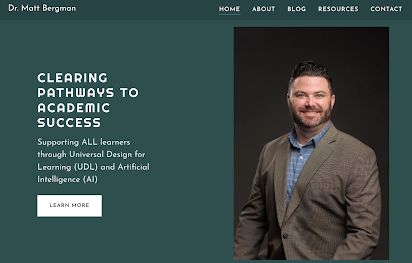I am currently going back to school again to learn more about Educational Technology and its impact on student learning. This past week, I explored the topic Assistive Technology and had an assignment to write for my class. I figured that I would kill two birds with one stone and share what I wrote with you.
I had never given much thought to how AT could
be used to not only provide access to the curriculum for students with
disabilities, but all students as well. A good example of this is a program called Wynn Read.
Wynn Read scans and reads text to students, highlighting the
words it “reads” to help students follow along and increase readability. It can
also be customized to meet student needs, such as changing the background to
different colors, so that students to be able to concentrate and see better. All
students can benefit from this program, particularly students with visual difficulties
and reading difficulties.
Cowrighter is a word prediction word processing program,
which helps students who may have a difficult time putting words on a screen.
It “predicts” which word a student might use next by contributing a list of potential
words. I like the fact that the program reads the text to them to help them
hear the content of the sentence. This is a great tool for students who have difficulties
with reading, writing, and spelling. After
watching the video, I began to recognize that this type of prediction software
is built into my Droid. It predicts which words I might need to use when I am
texting someone!
Finally, I never thought of Rosetta Stone as an Assistive
Technology, but I can see the value in schools today. In one public school that
I worked for, we had an influx of Russian students in our school. They didn’t
know any English. Instead of paying for a translator, these students were asked
to sit in my room and type English words from a first grade picture book. Rosetta Stone’s potential could help ESL
students who may be learning English, serve as a tutor for students struggling
in Spanish 1, or provide a teacher for a student taking advanced Mandarin
Chinese. I guess as a regular education teacher, we really don't give much thought to how AT can help not only students with disabilities, but all students learn better.






No comments:
Post a Comment